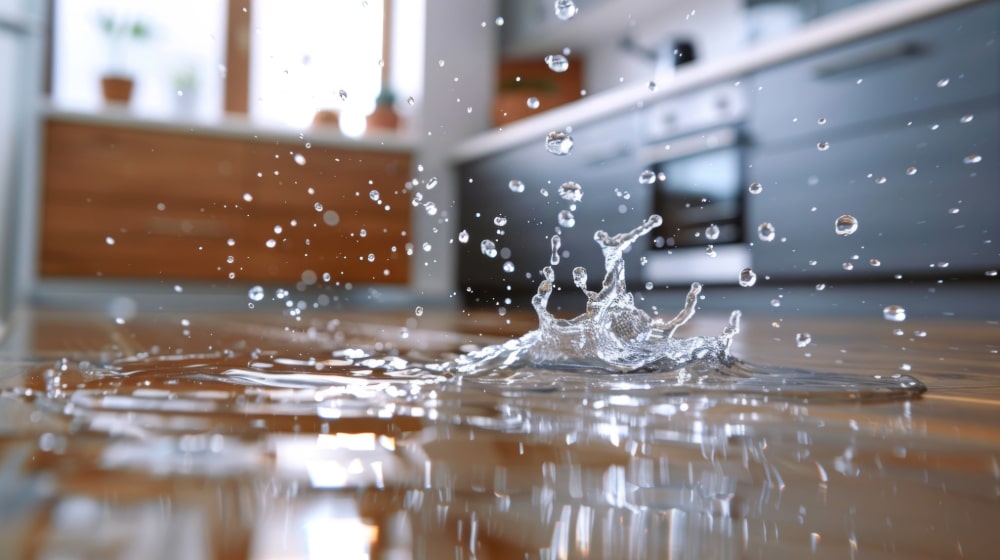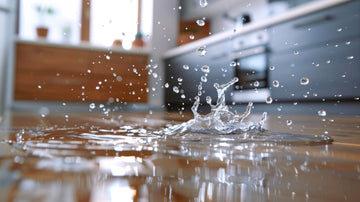In today's rapidly advancing technological landscape, preventing water damage with tech is becoming increasingly crucial for safeguarding both residential and commercial properties. Water damage can have devastating effects, leading to costly repairs and significant disruptions. For Industry Quality Assurance professionals, understanding and implementing the latest technological solutions is key to minimizing these risks and ensuring the integrity of structures.

The Importance of Water Damage Prevention
Water damage can occur from a variety of sources, including plumbing leaks, natural disasters, and faulty appliances. These incidents not only cause immediate destruction but can also lead to long-term structural issues and health hazards such as mold. With advancements in technology, particularly in smart home systems, mitigating these risks has never been easier.
Smart Leak Detectors: The First Line of Defense
Smart leak detectors are invaluable tools in the battle against water damage. These devices are designed to detect leaks early, providing alerts before the situation escalates. According to How Does a Water Leak Detector Work?, these detectors can be integrated into home automation systems, allowing for remote monitoring via smartphones or tablets.
There are several benefits to using smart leak detectors, such as immediate notifications and the ability to shut off water flow autonomously. As noted by 5 Advantages of Owning a Smart Leak Detection System, these devices offer peace of mind to homeowners and property managers alike.
Advanced Technology: Inline Water Leak Detectors
Inline water leak detectors are another advanced solution for preventing water damage. Positioned within water pipes, these devices use sensors to monitor water flow and detect irregular patterns indicative of leaks. This type of technology provides an added layer of security by catching potential issues at their source.
The Role of AI and IoT in Water Damage Prevention
Artificial Intelligence (AI) and the Internet of Things (IoT) are transforming how we approach water damage prevention. These technologies enable the collection and analysis of data in real-time, offering predictive analytics that can anticipate leaks before they occur. Devices connected through IoT can communicate seamlessly, providing a comprehensive overview of the property's water usage.
Industry QA professionals can leverage these technologies to implement intelligent water management systems that reduce the risk of water damage. By integrating AI and IoT, buildings can not only react to potential threats but also take proactive measures to avert them.
Choosing the Right Technology for Your Needs
When selecting the appropriate technology for water damage prevention, it's essential to consider the specific needs of your property. Factors such as size, type of water systems, and budget play a crucial role in determining the best solution. The Where to Buy Water Leak Detector guide offers insights on finding the right products that suit your requirements.
Additionally, the cost of implementing these technologies should be evaluated. Refer to Water Leak Sensor Cost for a comprehensive breakdown of expenses related to different types of leak detection systems.
Conclusion: Embrace Technology to Secure Your Future
The future of water damage prevention lies in the integration of advanced technologies that offer more precise and effective solutions. By embracing these innovations, Industry QA professionals can significantly reduce the incidence and impact of water damage, thereby protecting their assets more effectively.
For further information on smart home leak detection devices and how they can help in avoiding significant water damage, check 4 Smart Leak Detection Devices.

Frequently Asked Questions (FAQ)
Q1: What are the benefits of using smart leak detectors?
A1: Smart leak detectors provide early leak detection, immediate notifications, and can autonomously shut off water systems, offering peace of mind and protecting against potential water damage.
Q2: How do inline water leak detectors work?
A2: Inline water leak detectors are installed within water pipes and use sensors to monitor water flow patterns. They detect anomalies that may indicate leaks, providing a proactive approach to preventing water damage.
Q3: How can AI and IoT assist in water damage prevention?
A3: AI and IoT enable real-time data collection and predictive analytics, which help anticipate leaks before they occur. These technologies offer a comprehensive view of water usage and facilitate proactive measures to prevent potential water damage.






